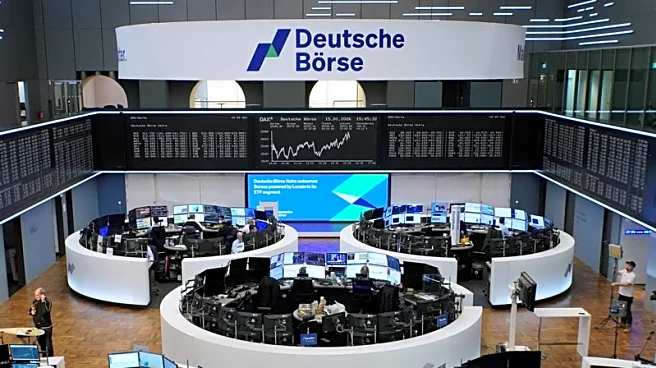What's Happening?
Army Secretary Daniel Driscoll is engaged in a 'holy war' with Congress to secure more flexible funding authority for electronic warfare, unmanned aerial systems, and counter-drone efforts. Driscoll has faced resistance in his efforts to consolidate funding for these areas, which he argues is necessary to keep pace with rapidly evolving technology. The Army's request for flexible funding was first announced in 2024, aiming to address the challenges posed by outdated acquisition processes. Driscoll emphasizes the importance of this flexibility to effectively counter emerging threats and deliver modern capabilities.
Why It's Important?
The debate over budget flexibility highlights the ongoing tension between the Pentagon and Congress regarding oversight and trust in defense spending. Flexible funding is seen as essential for the Army to adapt to technological advancements and deliver effective solutions to counter threats such as drones and electronic warfare. Without this flexibility, the Army risks falling behind in its ability to respond to modern battlefield challenges. The outcome of this debate could have significant implications for the Army's modernization efforts and its ability to maintain a competitive edge in defense capabilities.
What's Next?
As the National Defense Authorization Act debate continues, the Army will need to persuade Congress of the necessity of flexible funding to address critical defense needs. Driscoll remains optimistic that increased awareness of the risks posed by emerging threats will lead to a favorable outcome. The Army's ability to secure this flexibility will be crucial for its future modernization efforts and its capacity to effectively counter threats in a rapidly changing security environment.











